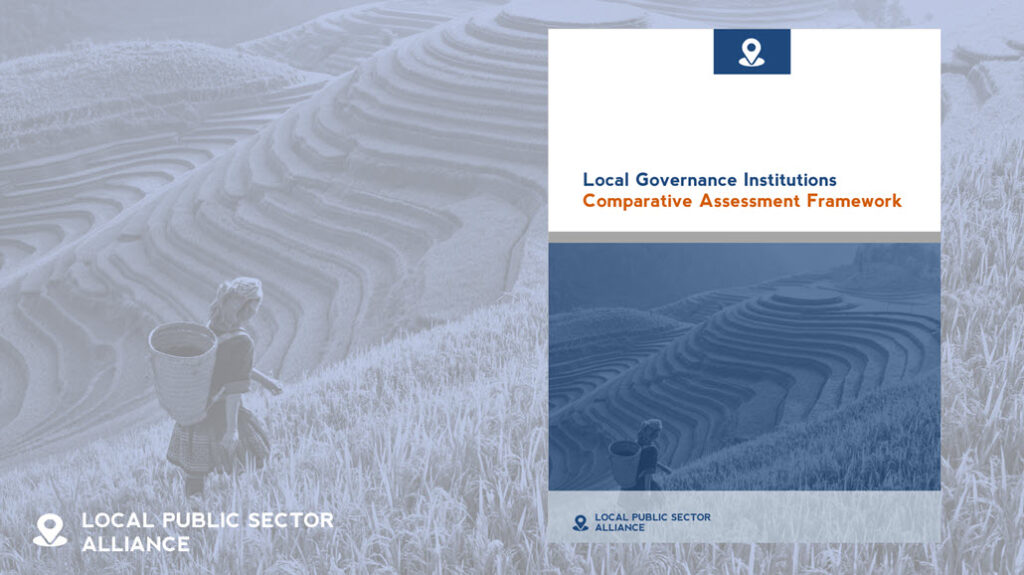
In countries around the world, subnational governments and other local public sector entities are responsible for delivering the public services that people rely on day-to-day: schools for their children, public health services, access to clean water and sanitation, creating job opportunities through local economic development, and so on. Although these public services align with global development objectives and national priorities, the delivery of these public services is fundamentally local in nature.
The Local Governance Institutions Comparative Assessment (LoGICA) Framework provides an assessment tool to analyze the multilevel governance structure of a country, along with the subnational institutions and intergovernmental systems that contribute to inclusive governance, effective public service delivery and sustainable localized development. It provides a common framework for describing, understanding and evaluating the multilevel aspects of the public sector, thereby informing and elevating the debate on decentralization and localization.
The LoGICA Framework considers five specific institutional dimensions of multilevel governance, including (i) the multilevel, territorial-administrative organization of the public sector and assignment of functional responsibilities; (ii) the political aspects of the subnational public sector; (iii) the administrative aspects of the subnational public sector; (iv) the fiscal aspects of the subnational public sector; and (v) mechanisms promoting inclusive and responsive localized services and development. A more effective public sector is achieved when each of these five institutional dimensions of a multilevel public sector are effective, well-structured, and fit together well.
The LoGICA Framework comprises three distinct but inter-related components, including the LoGICA Intergovernmental Context, the LoGICA Country Profile, the LoGICA Score Card, and associated reports (the LoGICA Country Brief and the LoGICA Assessment Report). The framework further provides guidance on the process of conducting the LoGICA Assessment in an inclusive and collaborative manner. A detailed overview of the LoGICA Framework is provided here.
Different parts of the LoGICA Framework may be applied in a stand-alone manner. For instance, a common entry-point into the LoGICA Framework is through the preparation of the LoGICA Intergovernmental Profile, which is an abridged version of the LoGICA Intergovernmental Context. Alternatively, a LoGICA institutional assessment may form the basis for more in-depth assessments, such as LPSA’s Intergovernmental Fiscal and Expenditure Review (InFER).
The Local Governance Institutions Comparative Assessment Framework was revised and updated by the Local Public Sector Alliance in September 2022 as the Alliance’s contribution to global efforts to promote inclusive government and sustainable development around the world.
Downloads / Links
LoGICA Framework Handbook (PDF, Rev. October 2022)
LoGICA Framework Template (Excel, Rev. October 2022)
LoGICA Subnational Institutional Typology (Google Forms)
Note: The updated version of the framework builds extensively on the Local Public Sector Country Profile Handbook (December 2012) and an earlier version of the LoGICA Framework (April 2015), prepared by the Urban Institute’s Local Public Sector Initiative.
